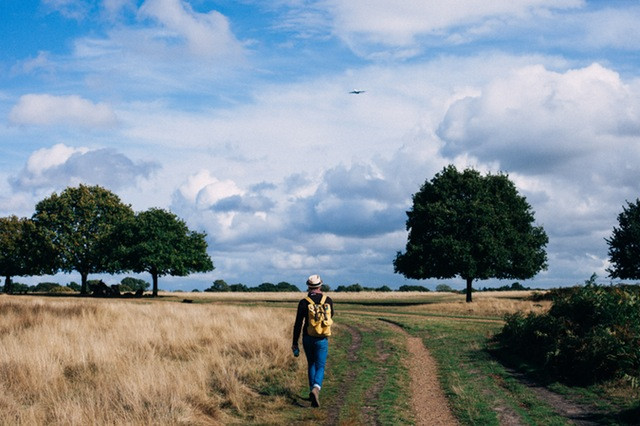
Physical exercise It has always been associated with toning muscles, burning calories and preventing diseases, but the truth is that its positive effects even have an impact on our psychological side.
In fact, many of the benefits of moving and stretching our muscles have to do with improvements not only in how we feel, but in the way we think. And although it may seem strange, This is noticeable even in exercise modalities as simple as the routine of walking every day
Some researchers believe that walking can be a good resource to help us think more creatively. Let’s see why this conclusion has been reached.
Walking to free the mind
There are people who, when they try to concentrate, instead of remaining motionless in the style of sculpture The Thinker They start pacing from one side to the other, even if they are in a relatively small room
This fact can be interpreted as a clue about one of the effects of going for a walk: it allows us to think more clearly. It is something that may be surprising, since it would be easy to imagine the opposite effect, that is, believing that thinking and walking at the same time costs more since they are two tasks that we have to attend to separately. However, this does not happen, because the action of walking acts as a kind of meditation. This is so for several reasons.

The vicious circle that captures our attention
The first reason is that walking serves to release tension. In addition to being useful for exercising many of the largest muscle groups in the human body, walks are a simple way to reduce stress levels, something that in itself is positive, since Prolonged periods of exposure to stress have a negative effect on our immune system But there is also another advantage related to the way in which walking helps us manage our attention. Specifically, this activity makes us stop constantly thinking about things that cause anxiety.
Many times, at the moment when there is something in our daily life that causes us a certain anxiety or sadness, something occurs in us that in psychology is known as rumination, that is, a tendency to take our thoughts towards the origin of that discomfort constantly, which sometimes causes us to enter a vicious circle and feel worse and worse. Rumination is a kind of train track that constantly guides our thoughts towards what makes us uncomfortable, and for that reason it feeds on routine.
The more we expose ourselves to stimuli that we have experienced before, the more likely it is that the focus of our attention will once again be directed towards those ideas or memories that produce stress, because We will have already become accustomed to associating everything we do with the negative feelings associated with routine
Breaking with pre-established paths
Walking is an experience that allows us to “disengage” our attention from those pathways through which our thinking usually runs because, in addition to reducing stress through light physical exercise, it makes our thinking more spontaneous and improvised by exposing ourselves to environments changing, new. And, with the perception of novel situations, also comes the ability to think more creatively.
Furthermore, since walking is a very simple task that is normally not difficult to perform, It is not necessary for our attention to be very focused on this sequence of movements
Walking is relevant enough to make us forget the thought circuits to which we are accustomed, but at the same time it is simple enough to allow our attention to find distractions spontaneously.
The process, summarized in its fundamental points, is as follows:
A creative path through the trees
We have already seen that walking has psychological benefits that are easy to find in almost any context, but there is a type of environment that combines very well with this activity: natural environments with vegetation.
The quality of the air in these spaces, the charm of this type of areas and the absence of elements that refer to our routine make natural areas a very good place to go to disconnect from everything and make our creativity and imaginative spontaneity they get to work.
As in a place with these characteristics it is difficult for the human body to experience the discomfort of the noise and pollution of cities, it is much easier for the stress level to drop significantly, making the brain feel hands-free. to experiment with thought and with the wealth of stimuli that come from the environment. Nature is, almost always, the best canvas








